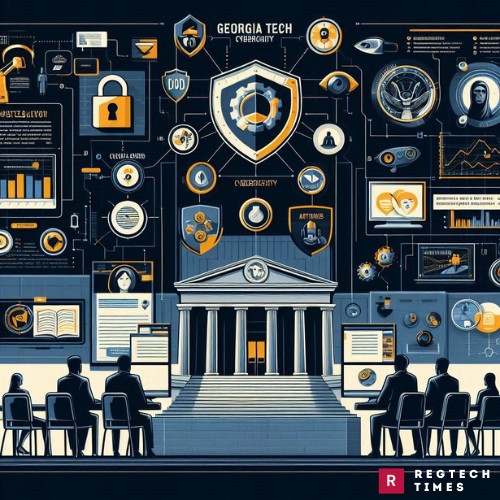The United States government has filed a major lawsuit against the Georgia Institute of Technology (Georgia Tech) and its affiliated Georgia Tech Research Corporation (GTRC), citing serious cybersecurity violations. This legal action highlights the government’s resolve to enforce stringent cybersecurity standards among its contractors, particularly those handling sensitive defense-related information.
Allegations Against Georgia Tech
The lawsuit, filed in the Northern District of Georgia, accuses Georgia Tech and GTRC of failing to meet cybersecurity requirements mandated by the Department of Defense (DoD). The complaint outlines several key allegations:
Inadequate Cybersecurity Measures: The Astrolavos Lab at Georgia Tech reportedly did not develop a comprehensive system security plan until February 2020. Even after this plan was implemented, it was allegedly insufficient, failing to cover all necessary devices such as laptops, desktops, and servers.
Lack of Anti-Virus Protection: Until December 2021, the Astrolavos Lab is said to have not installed, updated, or run anti-virus or anti-malware tools on its systems. This omission violated both federal cybersecurity requirements and Georgia Tech’s own policies. The lab’s refusal to install antivirus software was reportedly sanctioned by the institution, despite its clear deviation from standard practices.
Amsterdam’s Move to Ban Telegram: Addressing Cybersecurity and Espionage Risks
False Cybersecurity Assessment Submission: In December 2020, Georgia Tech and GTRC were accused of submitting a misleading cybersecurity assessment score to the DoD. The reported score of 98 was allegedly inaccurate, as it did not reflect the actual cybersecurity environment at Georgia Tech. Instead, it was said to pertain to a “fictitious” or “virtual” environment that did not correspond to any real systems processing sensitive defense information.
Whistleblower Involvement
The lawsuit was brought forward by Christopher Craig and Kyle Koza, who are former senior members of the cybersecurity team at Georgia Tech. These whistleblowers filed the suit under the False Claims Act, which allows private individuals to report fraud against the government and potentially receive a portion of any recovery. Their involvement emphasizes the role of internal watchdogs in uncovering and addressing compliance issues within large organizations like Georgia Tech.
Government’s Stance on Cybersecurity Compliance
Principal Deputy Assistant Attorney General Brian M. Boynton emphasized the importance of cybersecurity compliance in protecting sensitive government information. The Justice Department’s Civil Cyber-Fraud Initiative, established in October 2021, aims to hold accountable those who knowingly fail to meet cybersecurity standards or misrepresent their cybersecurity practices.
U.S. Attorney Ryan K. Buchanan stressed that government contractors, including Georgia Tech, are expected to adhere to cybersecurity requirements regardless of the organization’s size or nature. This case reflects a broader effort to ensure that all contractors uphold rigorous standards to protect national security and sensitive data.
University of Georgia Upholds Sanctions for 6 Students in Protest Controversy
Potential Consequences
If the allegations are proven, Georgia Tech and GTRC could face substantial financial penalties, including triple damages and other applicable fines under the False Claims Act. This case not only addresses the specific issues at Georgia Tech but also sets a precedent for how similar cases might be handled in the future.
Broader Implications
The lawsuit against Georgia Tech emphasizes the crucial importance of cybersecurity in government contracting. With the increasing prevalence of cyber threats and the sensitivity of defense-related information, enforcing strict cybersecurity practices is essential. The government’s proactive approach to holding contractors accountable serves as a reminder of the importance of transparency and adherence to cybersecurity standards.
The legal action involving Georgia Tech is a significant development in the realm of cybersecurity and government contracting. It highlights the need for rigorous cybersecurity compliance and the vital role of whistleblowers in bringing such issues to light. As the case progresses, it will likely have broad implications for how government contractors manage and report their cybersecurity practices, reinforcing their commitment to protecting sensitive information and national security.


